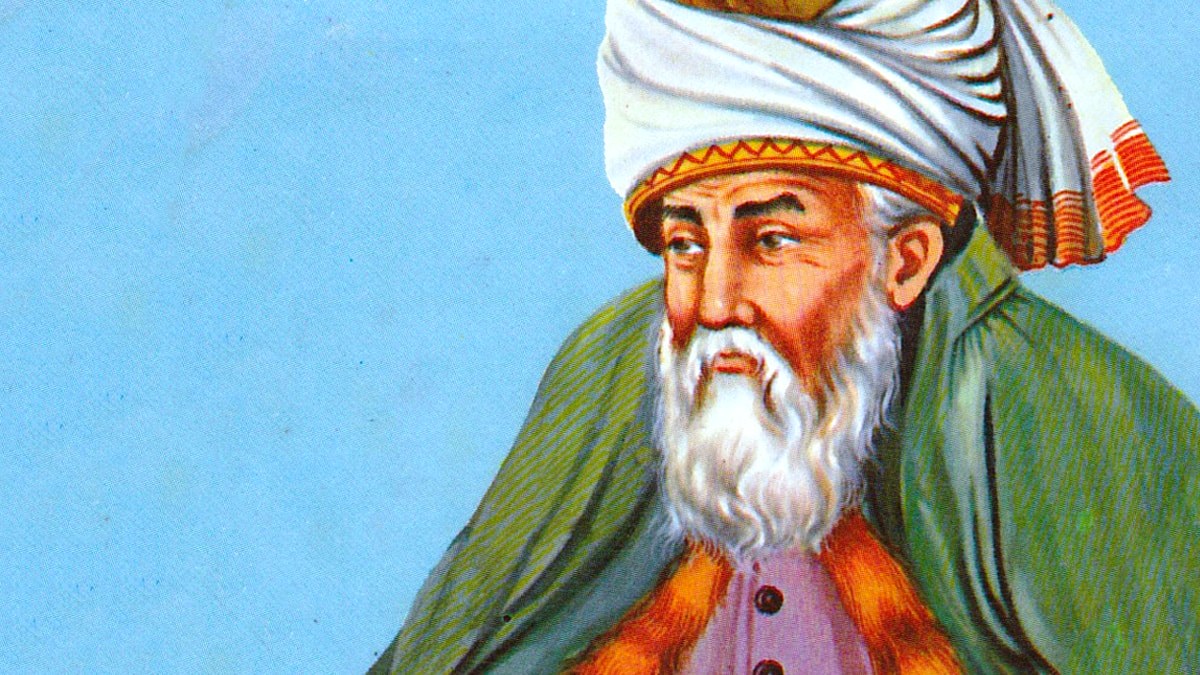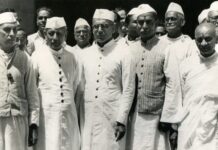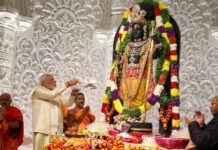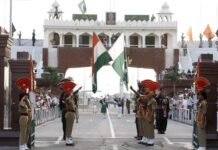Kashmir continues to be the most written-about region. Though the books focusing on Kashmir lack too many native voices, the 2023 collection is huge and impressive, writes Muhammad Nadeem
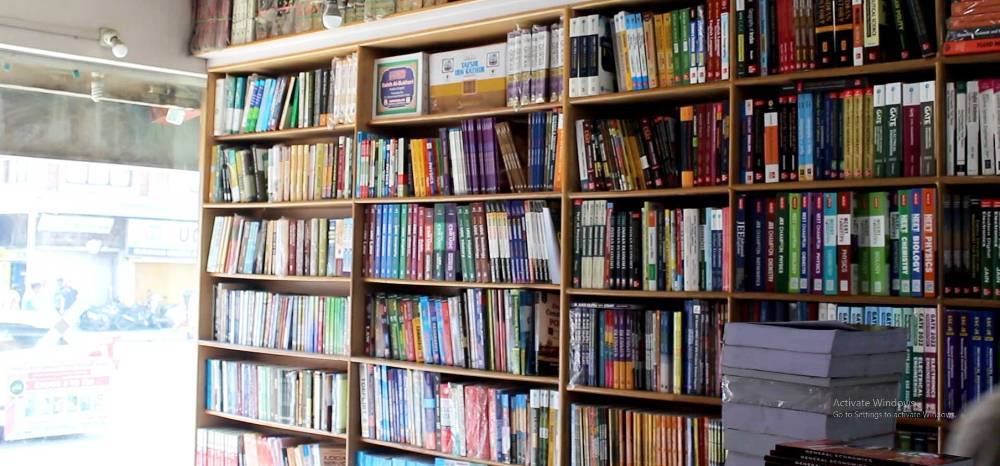
The year 2023 witnessed a surge in publications focusing on Kashmir, each book presenting a unique perspective that contributes to the ongoing discourse surrounding the region. However, in this book basket, the voices from within Kashmir are scarce. In a landscape dominated by narratives written by non-natives, the absence of resident Kashmiri authors raises questions about who holds the pen in crafting the story of this tumultuous region.
The scarcity extends even to the realm of fiction, where it has been years since a Kashmiri author penned a novel in the English language about their homeland. This raises a crucial concern: by not actively participating in telling our own stories, Kashmir inadvertently has given up. Kashmir as viewed from the outside and the Kashmir experienced within are completely two different styles of recording Kashmir. By not becoming an active participant in book writing, both fiction and non-fiction, Kashmir risks perpetuating stereotypes, reinforcing biases, and neglecting the rich, diverse stories that emerge from within Kashmir itself.
Sheikh Abdullah: The Caged Lion of Kashmir
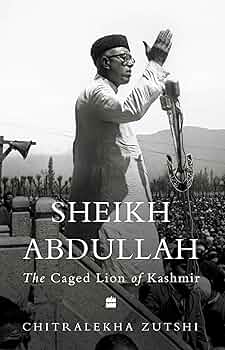
HarperCollins released Sheikh Abdullah: The Caged Lion of Kashmir, a comprehensive political biography by historian Chitralekha Zutshi. Released on December 21, 2023, as the second book in the Indian Lives series, the biography provides an in-depth look at the life of the Sheikh (1905-1982), a prominent and controversial political figure in twentieth-century South Asia. Known as the Lion of Kashmir, Sheikh was a fervent Kashmiri nationalist who opposed the Dogra monarchy’s exploitative system, played a key role in Jammu and Kashmir’s accession to India in 1947, implemented revolutionary land reforms as the Prime Minister of Jammu and Kashmir, and later advocated for Kashmiri self-determination, leading to his imprisonment for two decades. Zutshi’s biography goes beyond the conventional narrative, placing Abdullah’s life in the broader context of critical global developments in the twentieth century.
The book is part of the Indian Lives series, curated and edited by Ramachandra Guha, focusing on the life and legacy of significant figures from India’s history. Zutshi faced the challenge of “crafting Abdullah’s biography due to the limited body of his writings, drawing from oral histories, press reports, government documents, visual materials, and private papers to present a nuanced and complex portrayal”. The biography aims to allow readers to appreciate Abdullah’s complexities as a nationalist, political leader, revolutionary, prisoner, and head of state in the context of the global socio-political currents of the twentieth century. Initial reviews suggest the 2023 year-end book is completely different from all earlier books written about the man whom Kashmir loved and hated at the same time.
Kashmir: Book 3 of The Partition Trilogy
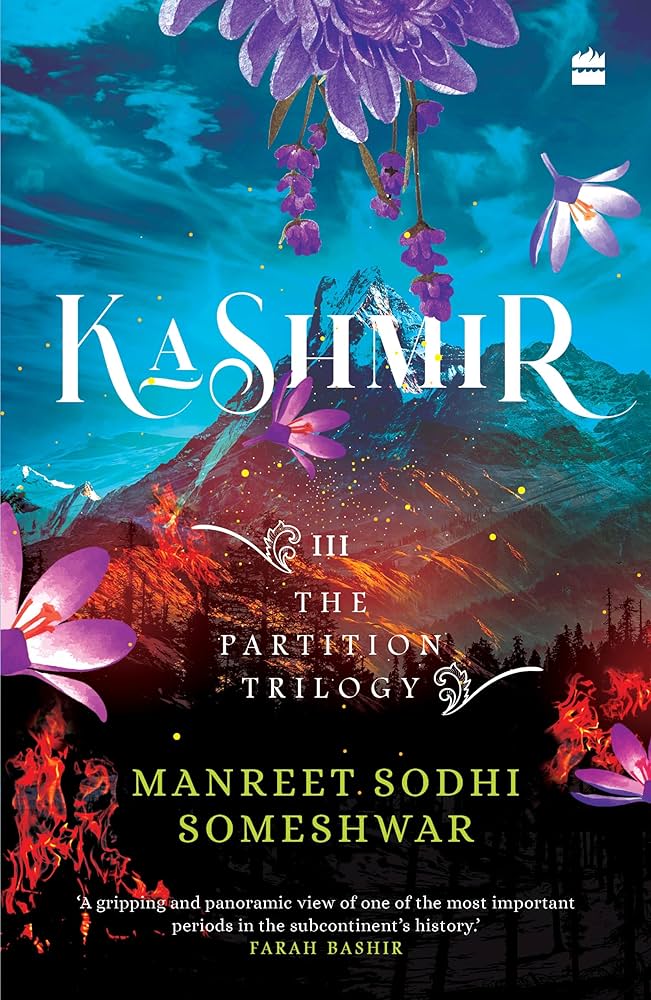
On December 1, 2023, Manreet Sodhi Someshwar concluded The Partition Trilogy with the release of Kashmir. The novel explores the historical events leading to Kashmir’s transformation into a battleground two months after India’s 1947 partition. Diving into the aftermath of partition, the novel scrutinises the impact on ordinary lives during the first Indo-Pak war.
Praised by authors Farah Bashir and Rana Safvi, Kashmir weaves together palace decisions and their devastating consequences, offering a panoramic view of this pivotal period. Someshwar’s motivation for The Partition Trilogy is to “humanise those affected by cataclysmic events, especially women, and to depict political leaders as flesh-and-blood characters”. Including Lahore and Hyderabad, the trilogy sheds light on lesser-explored aspects of partition history. Set against Maharaja Hari Singh’s rule, Kashmir unfolds Singh’s dream for a Switzerland-like status, Sheikh Abdullah’s call for freedom, and the violent upheaval caused by the Poonchis in Jammu. Characters like Durga Mehra, Zooni, Kashmira, and journalist Margot Parr bring to life the beauty of Kashmir juxtaposed with the harsh realities of war. The book promises an unforgettable retelling of Kashmir’s accession to India, offering readers a compelling glimpse into a fading period of modern India’s history.
A Fate Written on Matchboxes: State-Building in Kashmir Under India
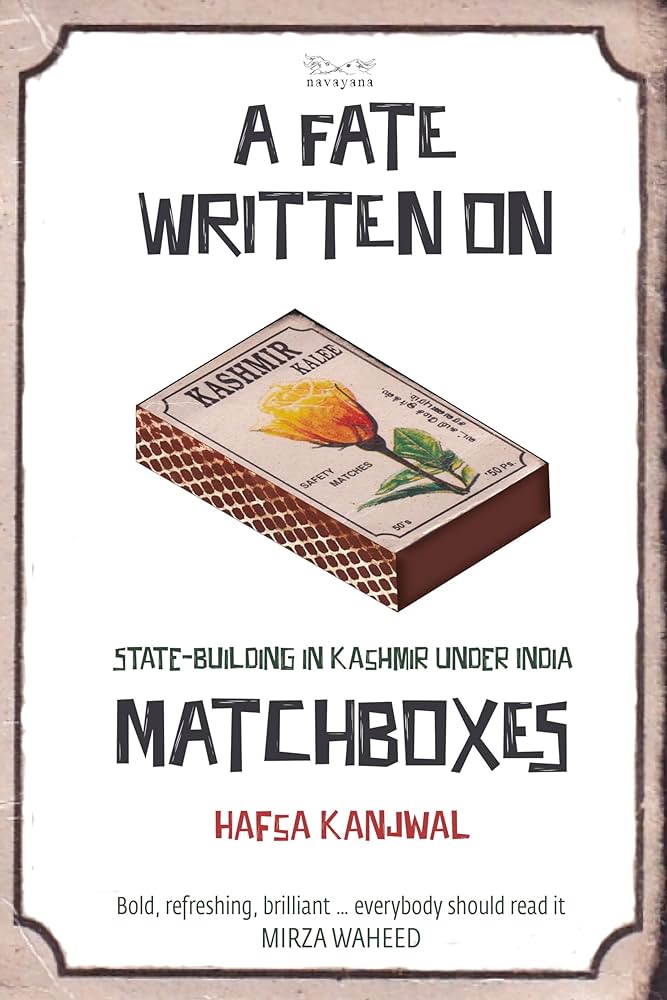
Published by Navayana Publishing Hafsa Kanjwal’s book, A Fate Written on Matchboxes, explores the history of Kashmir in the aftermath of the partition and its accession to India. It focuses on Bakshi Ghulam Mohammed, the prime minister who succeeded Sheikh Abdullah and led a client regime for Delhi for a decade. Bakshi’s “politics of life” prioritised day-to-day concerns like employment, education, and basic services while suppressing questions of self-determination.
The book uses bureaucratic documents, propaganda materials, memoirs, literary sources, and oral interviews to reveal tension, corruption, and repression in Bakshi’s governance. The Book also explores the integral role of Kashmir in the Indian nationalist vocabulary and the events leading up to the abrogation of Article 370 on August 5, 2019, which dismantled Kashmir’s special status. The author criticises narratives of triumphalism and emphasises the book’s counter-narrative.
The Palgrave Handbook of New Directions in Kashmir Studies
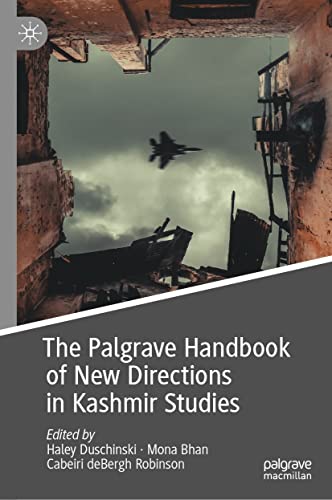
The Palgrave Handbook of New Directions in Kashmir Studies, co-edited by Cabeiri Robinson, Haley Duschinski, and Mona Bhan offers a comprehensive, interdisciplinary, and transregional perspective on Kashmir, examining the struggles of diverse communities for democratic accountability amidst geopolitical conflicts involving India, Pakistan, and China.
The book explores the impact of state power, border regimes, and historical events on the region’s identities, including colonial-era consolidations, wars, and geopolitical competitions. The book emphasises new directions in scholarship by considering local knowledge and practices and initiating a dialogue on the influence of state power and border regimes on intellectual and political projects across boundaries. The handbook aims to broaden understanding and facilitate discussions on Kashmir’s multifaceted aspects.
Kashmir’s Necropolis: New Literatures and Visual Texts
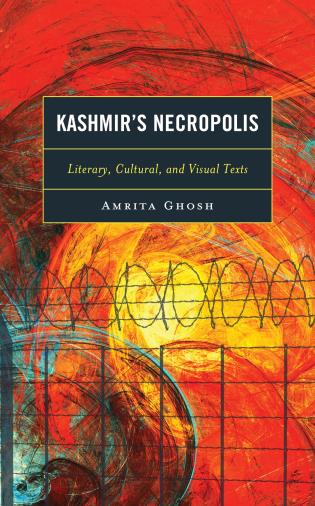
Kashmir’s Necropolis: New Literatures and Visual Texts by Amrita Ghosh is an interdisciplinary book that analyses literary texts, film, photography, and art to explore various forms of violence depicted in cultural productions related to Kashmir. The author contends that these selected texts portray how the prolonged conflict in the postcolonial nation-state transforms the Kashmiri body, space, relationships, and the connection between the subject and the natural world under different forms of violence.
The book identifies representational and textual violence in each chapter, highlighting shifts from biopolitical to necropolitical violence, including forms such as epicolonialism, horrorism, and hauntings in Kashmir’s landscape. The exploration extends to examining the concepts of agency, resistance, and resilience in these texts, proposing new poetics for understanding Kashmir.
The book addresses the unique challenges of representing violence in Kashmir, emphasising the need for a re-evaluation of postcolonial discourses to articulate distinct forms of violence in this context. Ghosh’s book contributes to the understanding of Kashmir as one of the most highly militarised spaces globally and reflects on the theoretical and critical challenges in studying terror, power discourses, and conflict zones like Kashmir.
Terror Financing in Kashmir
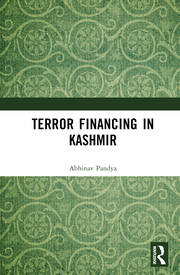
Dr Abhinav Pandya’s book, Terror Financing in Kashmir analyses the intricate web of terror financing in Kashmir. The book spans multiple phases from the early 1990s to the present, detailing how Pakistan created a system involving various actors, including state and non-state entities, to fund insurgency in Kashmir. It explores the evolution of terror financing methods, including cash couriers, narcotics smuggling, hawala, and new approaches like selling medical seats and fundraising through Haj tours. The book also delves into the involvement of mainstream institutions in this illegal financial network and its impact on Kashmir’s conflict.
Pandya draws on field surveys, interviews, and extensive research to shed light on a previously unexplored aspect of the Kashmir militancy. The book provides insights for academics, counterterrorism researchers, law enforcement officials, diplomats, and the intelligence community, and is notable for its objective analysis of Pakistan’s role in Kashmir militancy without anti-India bias.
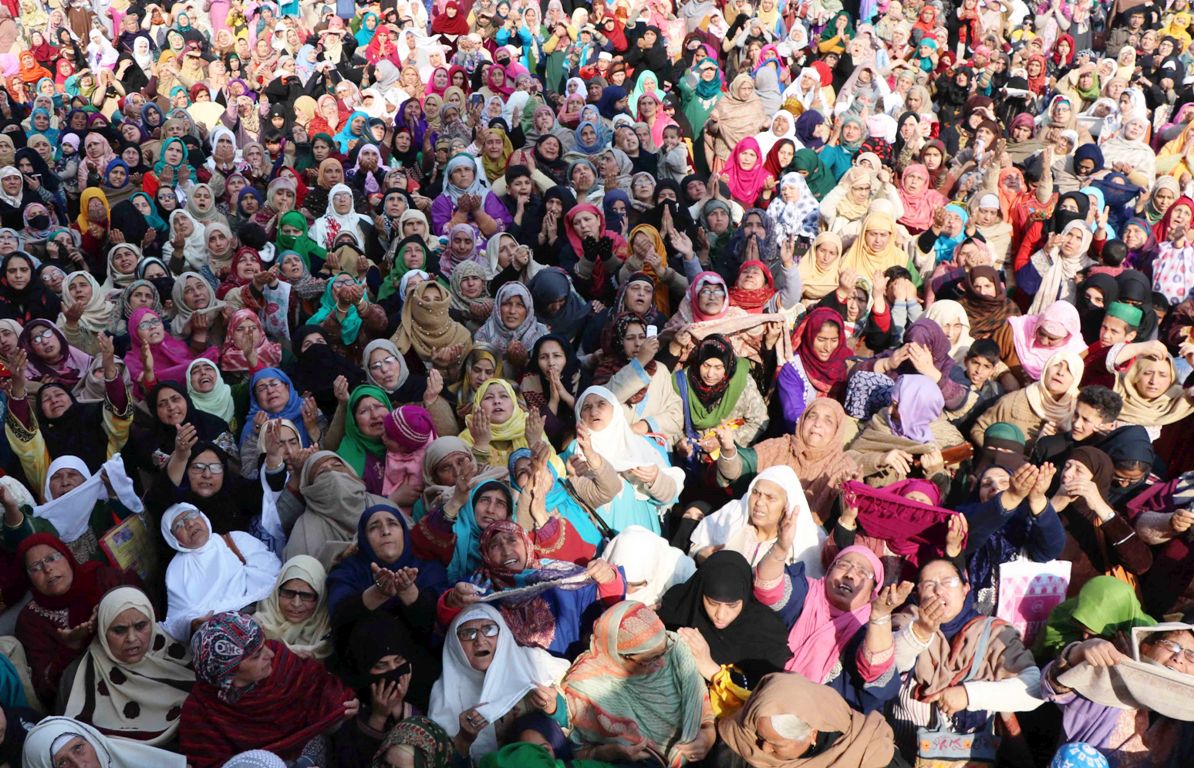
Numbers as Political Allies: The Census in Jammu and Kashmir
Published by Cambridge University Press in October 2023, Numbers as Political Allies: The Census in Jammu and Kashmir by Vikas Kumar analyses censuses in Jammu and Kashmir as public goods, collective self-portraits, and symbols of modernity. It explores the political economy of statistics in developing countries, tracking how censuses relate to administrative, legal, and political-economic contexts.
The book covers the entire life cycle of censuses, from the preparatory stages to the partisan use of data in policymaking and public debates. It discusses the quality of data in the last two censuses in Jammu and Kashmir, highlighting coverage errors and content errors.
The text also touches on the politics of numbers in Kashmir, particularly between 1991 and 2011, and the shifting nature of this politics about census and plebiscite dynamics. The author argues that Jammu and Kashmir’s data deficit is intertwined with ethnic-regional, communal, and scalar contests across governance levels and suggests measures to enhance public trust in the census.
Nuclear Flashpoint: The War Over Kashmir
Published by Pluto Press Nuclear Flashpoint: The War Over Kashmir by Farhan M Chak presents an alternative perspective on Kashmir, highlighting the voices of Kashmiris often overlooked in the discourse. The book explores the deliberate obscuring of Kashmir’s history, culture, and identity to serve ideological agendas, examining six unique time frames in Kashmiri history.
Chak challenges misconceptions and sheds light on Kashmir emphasising the importance of understanding Kashmir’s origins, people, and their aspirations. The author argues that India’s increasing control over Kashmir, particularly under the Modi government, raises the risk of a nuclear conflict involving India, Pakistan, and China.
Nund Rishi: Poetry and Politics in Medieval Kashmir
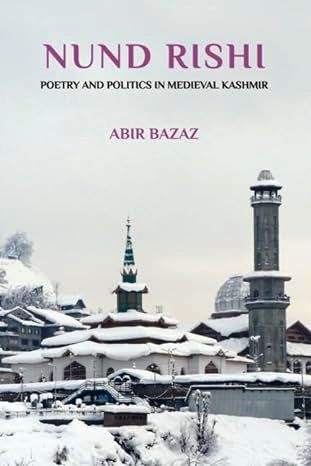
The book Nund Rishi: Poetry and Politics in Medieval Kashmir by Abir Bazaz published by Cambridge University Press explores the life and works of 14th-century Kashmiri Sufi mystic and poet Sheikh Noor-ud-Din Noorani, also known as Nund Rishi. The author provides historical and cultural context, focusing on the socio-political landscape of Kashmir during Nund Rishi’s time.
Set in medieval Kashmir, the narrative describes the cultures and influences, with mystics and poets, particularly Sufis like Nund Rishi, playing a significant role. Nund Rishi, born in 1378 AD, belonged to a tribe of shepherds and became a prominent figure in shaping the religious and literary traditions of the region. The book delves into his devotional poetry, written in Kashmiri, known for its spiritual and philosophical themes emphasising inner devotion and unity of religions.
Nund Rishi’s influence extended beyond the spiritual realm into the politics of medieval Kashmir, where the author explores how his ideas intersected with the political dynamics of the time. The author navigates through Nund Rishi’s poetry, making it accessible to readers unfamiliar with the Kashmiri language and offering fresh interpretations for those who are. The book maintains a balanced and scholarly tone, drawing from historical sources and academic research, providing valuable insights into the cultural and spiritual history of Kashmir.
Azaadi, Freedom & Change in Kashmir
The book Azaadi, Freedom & Change in Kashmir by Laura Schuurmans, published by Arena Books, aims to analyse the state and status of the Kashmir region in the backdrop of narratives in India, Pakistan, and China. The author emphasises the humanitarian dimensions of the mess, the historical background, and the need for a peaceful dialogue. The book includes interviews with notable leaders and offers in-depth details of case studies of transitional justice in South Africa and Timor-Leste.
The chapters cover the militancy, strategic aspects involving Pakistan and China, human rights abuses, and the disparities between India and Pakistan.
The Making of Early Kashmir: Intercultural Networks and Identity Formation
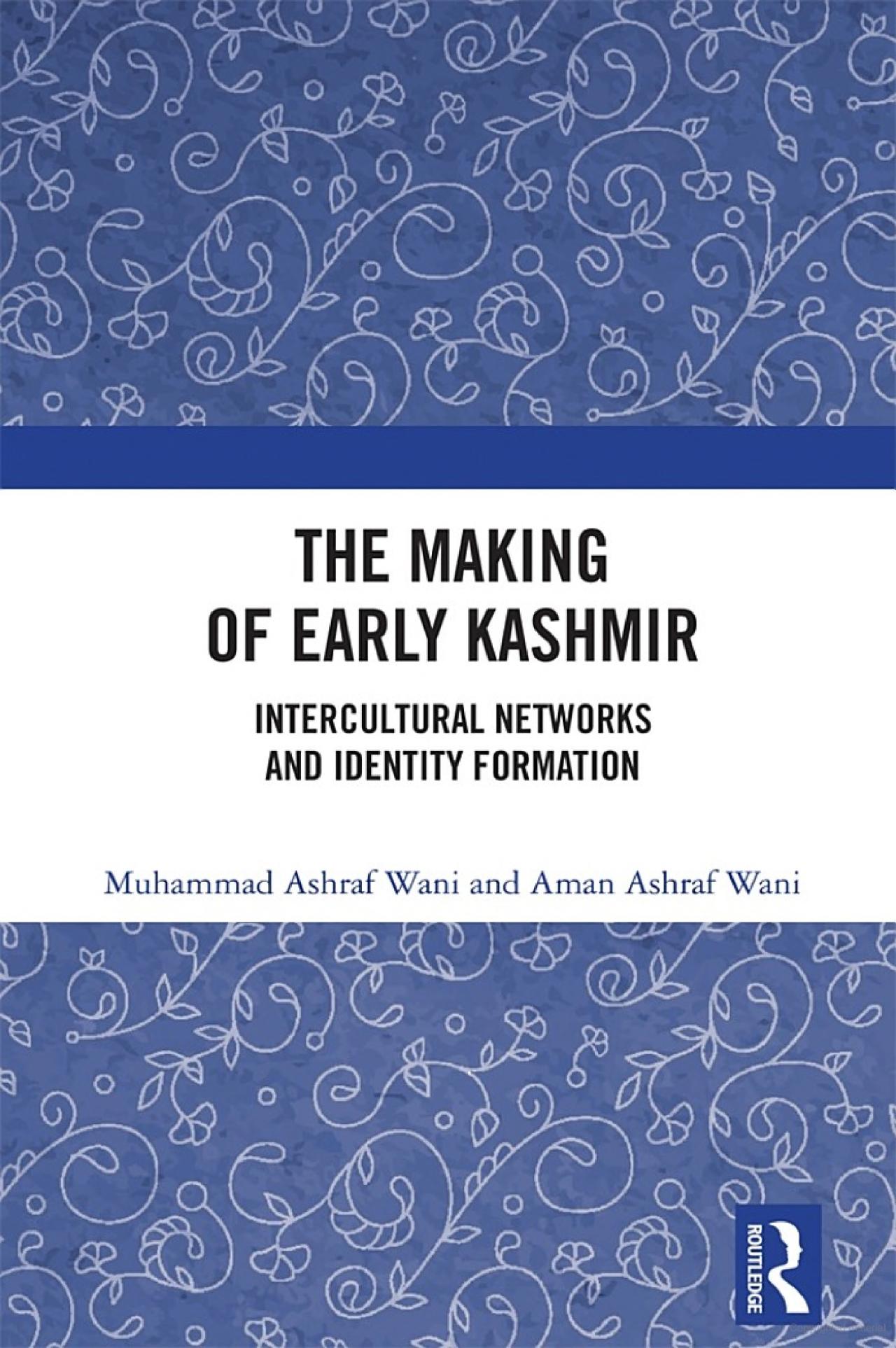
Published by Routledge, the book The Making of Early Kashmir: Intercultural Networks and Identity Formation by Muhammad Ashraf Wani and Aman Ashraf Wani provides a comprehensive history of early Kashmir from pre-history to the thirteenth century, challenging nationalist historiographies and placing Kashmir in the context of shared human histories.
It draws on various sources, including archaeological and literary, to present a connected history and is aimed at scholars and researchers in history, archaeology, anthropology, and South Asian studies. The authors explore the rich cultural mosaic of ancient Kashmir, highlighting evidence of intercultural influences from diverse regions, including Greece, Central Asia, China, and Iran. The book sheds light on the cosmopolitan religious tradition of Kashmir, its transition to Islam under Turkic rulers, and the shaping of its identity over time.
Gilded Cage: Years That Made and Unmade Kashmir
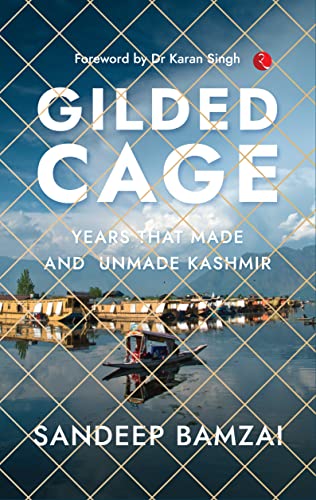
Sandeep Bamzai’s book, published by Rupa, Gilded Cage: Years That Made and Unmade Kashmir describes the history of Jammu and Kashmir, downplaying Sheikh Mohammad Abdullah’s role and emphasising the last Dogra Maharaja Hari Singh. Bamzai’s book challenges this narrative, portraying Sheikh as pivotal in the accession to India and highlighting Maharaja Hari Singh’s progressive policies.
The book delves into the complex political dynamics before and after 1947, discussing key figures like Swami Sant Deo and Ram Chandra Kak. It explores Hari Singh’s initial vision of an independent Kashmir, attributing the accession to India to Sheikh Abdullah’s patriotic mindset. The book covers the first war between India and Pakistan over Kashmir, British involvement, and the subsequent internationalization of the Kashmir issue.
Bamzai holds Sheikh Abdullah accountable for his arrest in 1953 and discusses the power struggle within the National Conference. The Constituent Assembly’s ratification of Kashmir’s accession in 1954 is considered a move defying the United Nations Security Council. The book also touches on the Modi government’s reading down of Article 370 and its impact on Kashmiri Pandits. While the book is praised for introducing new documents and insights, it is criticised for not providing a balanced perspective on certain events, such as the migration of Kashmiri Pandits and the political situation post-Article 370 abrogation.
Freedom in Captivity: Negotiations of Belonging along Kashmir’s Frontier
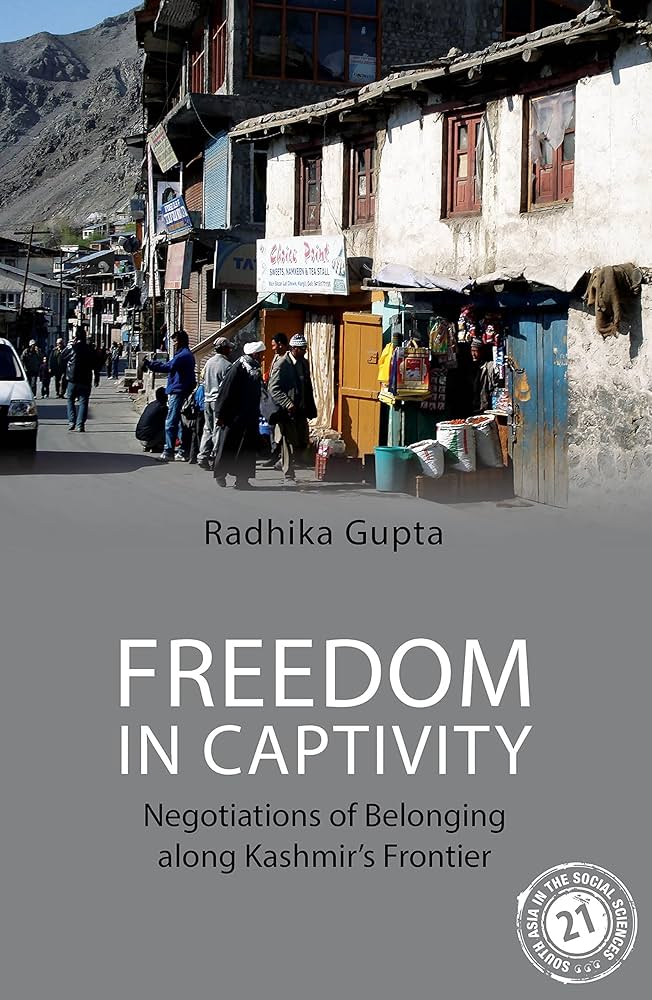
The book Freedom in Captivity: Negotiations of Belonging along Kashmir’s Frontierby Radhika Gupta explores the experiences of Shia Muslims in Kargil, a region along the highly militarised border of Kashmir. The author examines how borderland dwellers negotiate state security regimes and geopolitical realities in their everyday lives.
The focus is on the Shia Muslims of Kargil, who, unlike Kashmir, seek to belong to India while maintaining distinct political subjectivity and cultural identification. The book challenges conventional narratives, offering a bottom-up approach to studying borderlands, emphasising how residents actively navigate security-centric state apparatuses without transgressing borders.
The ethnographic research conducted between 2008 and 2021 provides a long-term perspective on the lives of people in this contested region, encouraging readers to view borderlands as cartographies of ideas rather than merely physical spaces. The work is praised for its analytical sophistication and contribution to scholarship on borderland communities, offering a unique perspective on the negotiation of regional and national projects of encapsulation by Kargili Shi’as.
A Modern History of Jammu and Kashmir
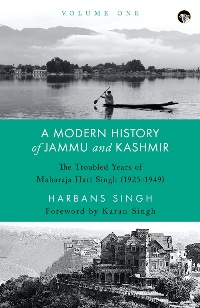
Harbans Singh’s A Modern History of Jammu and Kashmir series, among many other arguments attempts to rehabilitate the image of Maharaja Hari Singh, presenting a biased narrative that defends him while attacking critics like Sheikh Abdullah. Criticised for lacking objectivity, the book selectively highlights aspects of history, shifting blame for discontent away from the Maharaja and attributing it to external forces.
The discussion of key events, such as the 1931 Unrest acknowledges occurrences but denies state complicity, ignoring alternative historical evidence. The book distorts the narrative of accession, blaming Congress leaders and Sheikh Abdullah while sidelining Hari Singh for deliberate delay. Critiqued as a hagiography, it inflates the Maharaja’s contributions while overlooking complexities in the feudal structure and discontent among subjects.
The second volume of Harbans Singh’s trilogy focuses on Yuvraj
Karan Singh’s political journey portrays him as a stabilizing force during a
power struggle in Jammu and Kashmir. Emphasising political changes and
integration with India, the book explores Karan Singh’s role through historical
sources and extensive correspondence with Jawaharlal Nehru and Indira Gandhi.



